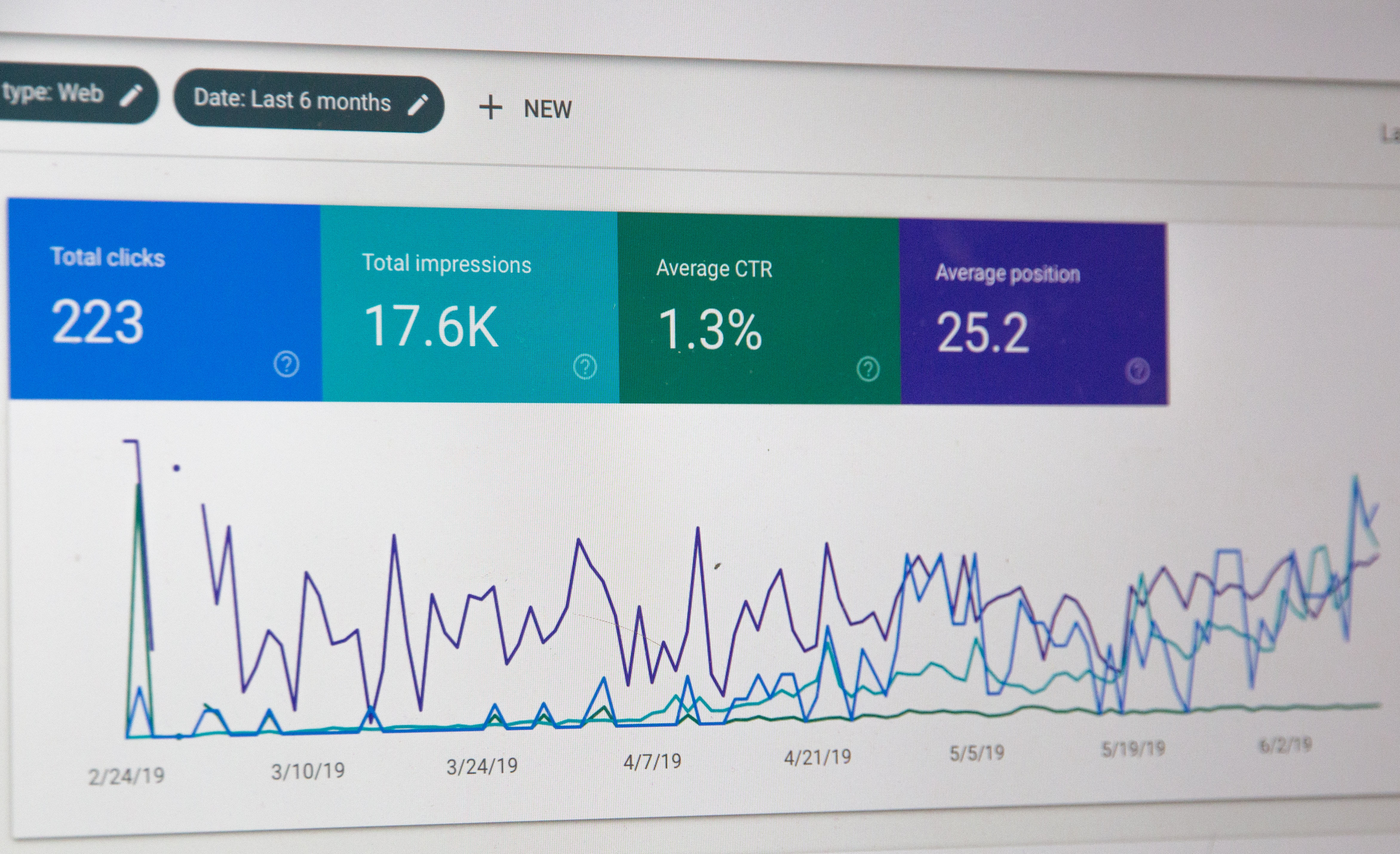In the ever-evolving landscape of digital marketing, SaaS startups are increasingly turning to Inbound Marketing as a transformative strategy. This comprehensive guide delves into the core principles of Inbound Marketing and underscores why it is indispensable for the success of your SaaS venture.
Understanding Inbound Marketing
Defining Inbound Marketing
At its essence, Inbound Marketing is a customer-centric methodology that revolves around attracting and engaging potential customers through tailored, valuable content. Unlike traditional outbound strategies that interrupt audiences with unsolicited messages, Inbound Marketing seeks to create meaningful connections by providing relevant and helpful information.
In today's digital age, where consumers are bombarded with countless advertisements and promotions, it has become crucial for businesses to adopt a more customer-centric approach. Inbound Marketing allows businesses to break through the noise and build genuine relationships with their target audience.
By creating tailored and valuable content, businesses can attract potential customers who are actively seeking solutions to their problems. This is done through the strategic use of Search Engine Optimisation (SEO) techniques, ensuring that the content surfaces when the audience is actively looking for answers.
Furthermore, Inbound Marketing emphasises the importance of engagement. Once visitors are drawn to a platform, the goal is to build lasting relationships with them. This is achieved by providing valuable and shareable content that fosters engagement and interaction. Social media platforms play a pivotal role in this stage, providing a space for direct interaction and community building.
Inbound Marketing creates personalised experiences by leveraging software and technology solutions. CRM software tracks customer interactions, leads, and sales. Marketing automation tools save time and deliver personalised experiences. SEO tools optimise website visibility. Website hosting and CMS platforms build professional websites. PRM platforms maximise reach in indirect sales and marketing. It's important to allocate a budget for market research, creative design, paid advertising, events, and content production.
The Core Principles
- Attract: Drawing the Right Audience
The inception of Inbound Marketing lies in attracting your target audience through compelling content. This involves leveraging Search Engine Optimisation (SEO) and robust, insightful, content strategies to ensure your content surfaces when your audience actively seeks solutions.
2. Engage: Building Lasting Relationships
Once visitors are drawn to your platform, the next step is engagement. Inbound Marketing emphasises the creation of valuable and shareable content that fosters relationships with your audience. Social media plays a pivotal role in this stage, providing a platform for direct interaction and community building.
Why Inbound Marketing for SaaS Startups?
Tailored Approach for SaaS
SaaS startups navigate a distinct landscape in the realm of marketing, marked by nuanced challenges and a sophisticated audience. The intricacies of the SaaS buyer's journey demand a strategy that aligns seamlessly with every stage of the decision-making process. Inbound Marketing stands out as the catalyst for addressing these challenges by tailoring its approach to the specific needs of your SaaS audience.
- Creating Awareness
At the initial stage of the buyer's journey, Inbound Marketing facilitates the creation of awareness in a cluttered digital space. By strategically employing content marketing, SEO, and social media engagement, your SaaS startup can position itself in front of potential customers, ensuring that your solutions are discoverable when they begin their exploration.
2. Aiding Consideration
As potential customers delve deeper into their evaluation, Inbound Marketing continues to shine. Educational content such as in-depth blog posts, comparison guides, and webinars can aid your audience's consideration process. By providing valuable insights and addressing common pain points, your SaaS startup becomes a valuable resource, establishing a foundation of trust.
3. Supporting Decision-Making
In the final stages of the buyer's journey, when decisions are being made, Inbound Marketing steps up to provide the information needed for informed choices. Case studies, product demonstrations, and interactive content serve to showcase the unique value proposition of your SaaS solution, guiding potential customers toward a confident decision in choosing your offerings.
Establishing Authority
In the highly competitive SaaS industry, where numerous startups vie for attention, establishing authority is not merely an option but a prerequisite for success. Inbound Marketing emerges as a powerful tool for your startup to not only assert its expertise but also to become a trusted thought leader within the industry.
- Thought Leadership Content
Inbound Marketing enables your SaaS startup to create and disseminate thought leadership content consistently. Through insightful blog posts, whitepapers, and expert opinion pieces, your brand can contribute valuable perspectives, showcasing a deep understanding of industry trends, challenges, and innovations. This continuous delivery of thought leadership content positions your startup at the forefront of industry conversations.
2. Building Trust Through Consistency
Consistency is key in the world of Inbound Marketing. By consistently providing valuable insights and maintaining a presence across various platforms, your SaaS startup not only attracts leads but also builds trust within the industry. This trust is a powerful currency that translates into customer loyalty and advocacy. As your startup becomes a reliable source of relevant and insightful information, trust transforms into a competitive advantage, setting you apart in the crowded SaaS market.
In conclusion, the tailored approach of Inbound Marketing for SaaS startups extends beyond addressing the unique challenges of the buyer's journey; it becomes a strategic advantage in establishing authority and building trust within the fiercely competitive SaaS landscape. By aligning seamlessly with the needs of your audience and consistently delivering valuable insights, Inbound Marketing empowers your startup to not only navigate challenges but also emerge as a respected leader in the dynamic SaaS industry
Key Components of a Successful Inbound Marketing Strategy
Content Creation
At the heart of Inbound Marketing lies content. For SaaS startups, this involves crafting blog posts, whitepapers, and case studies that address the pain points and interests of your target audience. The content should be informative, engaging, and tailored to the unique challenges of your target industry.
Lead Magnet Strategies
Lead magnets are valuable resources offered to your audience in exchange for their contact information. For SaaS startups, this could be in the form of free trials, exclusive guides, or webinars. These magnets not only attract leads but also demonstrate the value your product or service provides.
Marketing Automation
Streamlining processes is essential for SaaS startups, and marketing automation plays a crucial role in achieving efficiency. From lead nurturing to personalised communication, marketing automation tools enhance the effectiveness of your Inbound Marketing strategy.
CRM Integration
Customer Relationship Management (CRM) tools are integral for managing interactions with potential and existing customers. Integrating CRM with your Inbound Marketing strategy allows for a seamless flow of information, aiding in personalised and targeted campaigns.
Getting Started with Inbound Marketing for Your SaaS Startup
Implementing Inbound Marketing doesn't have to be overwhelming. With a well-defined strategy and the right tools, your SaaS startup can kickstart its Inbound Marketing journey and start seeing results. Here's a step-by-step guide to help you get started:
- Define Your Goals:
Before diving into Inbound Marketing, it's important to establish clear goals for your SaaS startup. Identify what you want to achieve, whether it's increasing brand awareness, generating leads, or driving conversions. This will guide your entire strategy and help you measure success. - Assess Your Target Audience:
Understanding your target audience is crucial for effective Inbound Marketing. Conduct thorough research to identify their demographics, pain points, and preferences. This will allow you to create content and messaging that resonates with your ideal customers. - Develop a Content Calendar:
A content calendar is a roadmap for your content creation efforts. Plan your content strategy in advance, ensuring consistency and relevance. Consider the different stages of the buyer's journey and create content that addresses your audience's needs at each stage. This could include blog posts, whitepapers, case studies, videos, and more. - Optimise for Search Engines:
Search Engine Optimisation (SEO) is essential for ensuring your content is discoverable by your target audience. Conduct keyword research to identify relevant keywords and incorporate them strategically into your content. Optimise your website structure, meta tags, and headings to improve visibility in search engine results. - Create Compelling Content:
Content is the backbone of Inbound Marketing. Craft informative, engaging, and valuable content that addresses the pain points and interests of your target audience. This could include how-to guides, industry insights, expert interviews, and customer success stories. Focus on providing solutions and building trust with your audience. - Offer Valuable Lead Magnets:
Lead magnets are resources that you offer to your audience in exchange for their contact information. Create valuable lead magnets such as e-books, templates, checklists, or webinars that address specific pain points or provide valuable insights. This will help you capture leads and nurture them through the buyer's journey. - Leverage Marketing Automation:
Marketing automation tools can streamline your Inbound Marketing efforts and improve efficiency. Use automation to nurture leads, personalise communication, and track customer interactions. This will help you deliver the right message to the right person at the right time, increasing engagement and conversions. - Integrate CRM: Integrating Customer Relationship Management (CRM) tools with your Inbound Marketing strategy is essential for managing interactions with potential and existing customers. CRM integration allows for a seamless flow of information, enabling personalised and targeted campaigns.
- Analyse and Optimise: Regularly analyse your Inbound Marketing efforts to measure success and identify areas for improvement. Track key metrics such as website traffic, lead generation, engagement, and conversion rates. Use this data to optimise your strategy, refine your content, and adapt to the changing needs of your audience.
By following these steps, your SaaS startup can confidently embark on its Inbound Marketing journey and start attracting, engaging, and converting your target audience. Remember, Inbound Marketing is a long-term strategy, so stay consistent, keep adapting, and continuously provide value to your audience.
Measuring Success: Key Metrics for Inbound Marketing
To gauge the effectiveness of your Inbound Marketing efforts, it is crucial to track key metrics that provide valuable insights into your strategy's performance. By monitoring these metrics, you can make informed decisions, optimise your approach, and drive better results. Here are the key metrics to focus on:
- Conversion Rates:
Conversion rates measure how effectively you turn leads into customers. By tracking this metric, you can assess the success of your sales funnel and identify any areas for improvement. A high conversion rate indicates that your Inbound Marketing efforts are effectively driving qualified leads and converting them into paying customers. - Lead Generation Metrics:
Monitoring lead generation metrics allows you to evaluate the performance of your strategies in attracting potential customers. Key metrics to track include the number of leads generated, the source of the leads, and the conversion rate from lead to prospect. This data helps you identify which channels and tactics are most effective in generating leads for your SaaS startup. - Nurturing Metrics:
Once you've generated leads, nurturing them through the buyer's journey is essential. By tracking nurturing metrics, such as email open rates, click-through rates, and engagement levels, you can assess the effectiveness of your nurturing campaigns. This data enables you to tailor your communication and content to better resonate with your leads, ultimately increasing the chances of conversion. - Website Traffic:
Monitoring website traffic provides insights into the overall visibility and reach of your Inbound Marketing efforts. By tracking metrics such as total visits, unique visitors, and page views, you can evaluate the effectiveness of your content and SEO strategies. Increasing website traffic indicates that your content is attracting and engaging your target audience effectively. - Engagement Metrics:
Engagement metrics measure how effectively your audience is interacting with your content. Key metrics to track include time spent on page, social media shares, comments, and likes. These metrics indicate the level of interest and engagement your content is generating. Higher engagement levels suggest that your content is resonating with your audience and driving meaningful interactions. - Customer Acquisition Cost (CAC):
CAC measures the cost required to acquire a new customer. By calculating this metric, you can assess the efficiency of your Inbound Marketing strategy in terms of cost-effectiveness. Lower CAC indicates that your efforts are generating customers at a lower cost, ensuring a higher return on investment.
By regularly monitoring and analysing these key metrics, you can gain valuable insights into the effectiveness of your Inbound Marketing strategy. This data empowers you to make data-driven decisions, optimise your approach, and drive better results for your SaaS startup. Remember, continuous improvement is essential in the ever-evolving landscape of Inbound Marketing.
Wrapping Up
Inbound Marketing is not just a strategy; it's a philosophy that aligns with the values of today's consumers. For SaaS startups looking to build lasting relationships, establish authority, and drive sustainable growth, embracing Inbound Marketing is not just an option—it's a necessity. Begin your journey today and witness the transformative impact on your SaaS venture.
Get in touch for a free inbound consultation or download our Beginner's Guide to Generating Inbound Leads:





